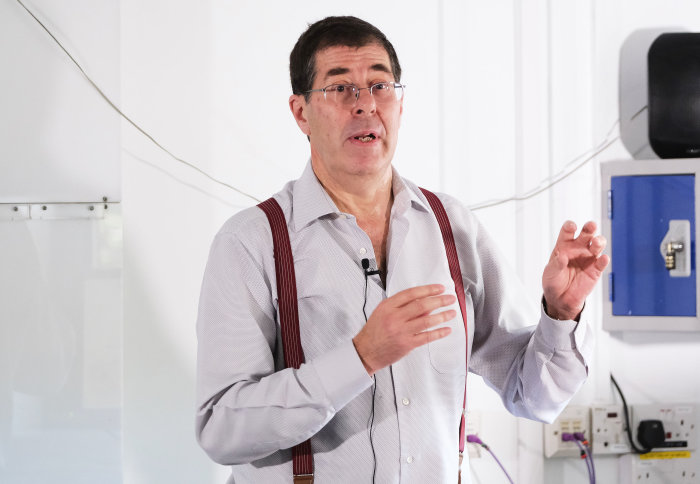Researcher discusses the mystery of why we sleep
by Maxine Myers

Poor sleep can badly affect health but we still do not understand the purpose of sleep, said an Imperial researcher at a recent talk.
Professor Nick Franks, Professor of Biophysics and Anaesthetics at Imperial College London, talked about his work on the neuroscience of sleep and what is understood about the role of sleep at the Imperial College Academic Health Science Centre (AHSC) seminar earlier this month. He was joined by Professor Mary Morrell, Professor of Sleep and Respiratory Physiology at the National Heart and Lung Institute, who talked about her work to develop new treatments and technologies to treat obstructive sleep apnoea (OSA) in older patients.
There are different theories on why sleep is needed but despite decades of research, scientists still can’t agree the purpose of seep.
“It’s astonishing that we still don’t yet know why we sleep. Research has shown the effects of poor sleep, such as reduced mood and concentration as well as increasing the risk of serious conditions such as obesity, heart disease and diabetes. There are many different theories as to why we need to sleep and at Imperial we are exploring and developing our own theories so we can potentially develop new ways of treating a range of diseases linked to poor sleep.”
Speaking at the Royal Brompton Hospital, Professor Franks talked about the different theories on why sleep is needed. One theory is that sleep is necessary to reset connections between brain cells and process information from the previous day. Professor Franks also discussed research suggesting that sleep is essential for clearing damaged proteins and waste from the brain. This insight could lead to new ways of treating a range of diseases that may be linked to poor sleep such as dementia.
Professor Franks also talked about research on the effects of poor sleep.
One in three people in the UK suffer from poor sleep. Many effects of poor sleep, such as reduced mood and concentration, are well known but regular poor sleep can put people at risk of serious medical conditions such as obesity, heart disease and diabetes – and it may even shorten life expectancy.
Professor Franks discussed research that looked at cognitive impairment following poor sleep over a period of 24 hours. Study participants were asked to perform a simple hand eye coordination test after varying levels of sleep deprivation. The researchers found that participants’ performance on the test declined with sleep deprivation, especially in participants who had less than six hours of sleep.
Professor Franks says that with about 24 hours of sleep deprivation, people’s
performance was impaired to a similar extent to that seen in people at the drink-driving limit.
The seminars are an example of the work carried out by Imperial College AHSC, a joint initiative between Imperial College London and three NHS hospital trusts. It aims to transform healthcare by turning scientific discoveries into medical advances to benefit local, national and global populations in as fast a timeframe as possible.
Article text (excluding photos or graphics) © Imperial College London.
Photos and graphics subject to third party copyright used with permission or © Imperial College London.
Reporter
Maxine Myers
Communications Division